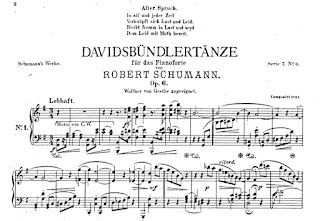This year began with the release of a new album of the early works for piano composed by Clara Schumann. The pianist is Angela Tirino; and the album was released by Urania Records, which is based in Italy. On the basis of my first round of Google searches, it appears that, given the potential complications and delays involved in overseas shipping, the album is currently only available for MP3 download. The Amazon.com Web page for this item accounts for all eighteen tracks but does not include a PDF file of any accompanying booklet.
Some readers may recall that, back in October of 2019, I reported on the four-CD album released on the German Profil label accounting for Schumann’s complete works for piano solo. The pianist for that collection was Susanne Grützmann, and I must confess that I prefer her interpretations of Schumann’s music to those of Tirino. The new album limits its attention to the Opus 1 collection of four polonaises (composed between 1829 and 1830), the Opus 6 Soirées musicales (1834–1836), the Opus 9 G major impromptu (1838), the Opus 11 “Romances” (1838–1839), and the G minor piano sonata (1841–1842), which was never assigned an opus number.
Schumann was born on September 13, 1819, so her work on Opus 1 probably took place when she was ten years old. She married Robert Schumann on September 12, 1840, meaning that, strictly speaking, the sonata is the only work on this album that justifies Clara being given the name Schumann, rather than her father’s last name, Wieck. However, Robert had known Clara since late in 1828, when he first heard her perform.
Presumably, he became familiar with her compositions, even though he rented a room in the Wieck household to take lessons from her father. The one composition that we know influenced Robert was the mazurka movement from her Opus 6 suite. We know this because Robert appropriated the theme of that movement for his Opus 6 Davidsbündlertänze suite of eighteen “character pieces;” and he was kind enough to credit Clara as the source of that theme:


No comments:
Post a Comment